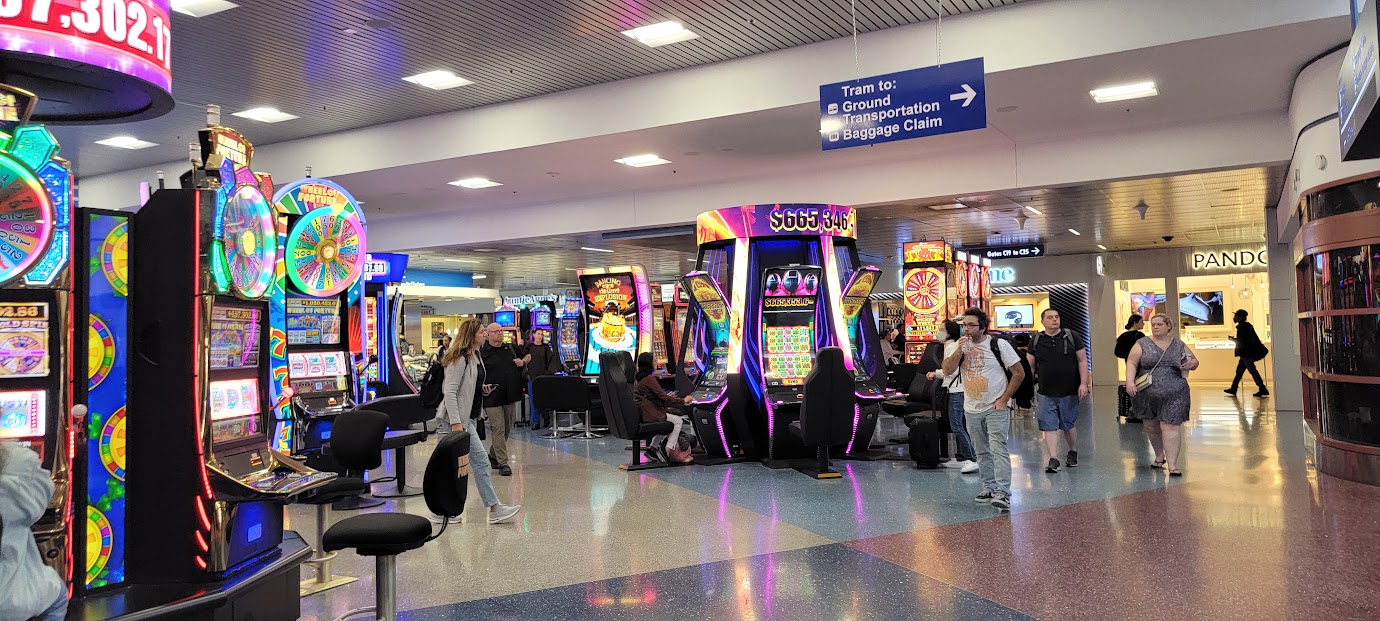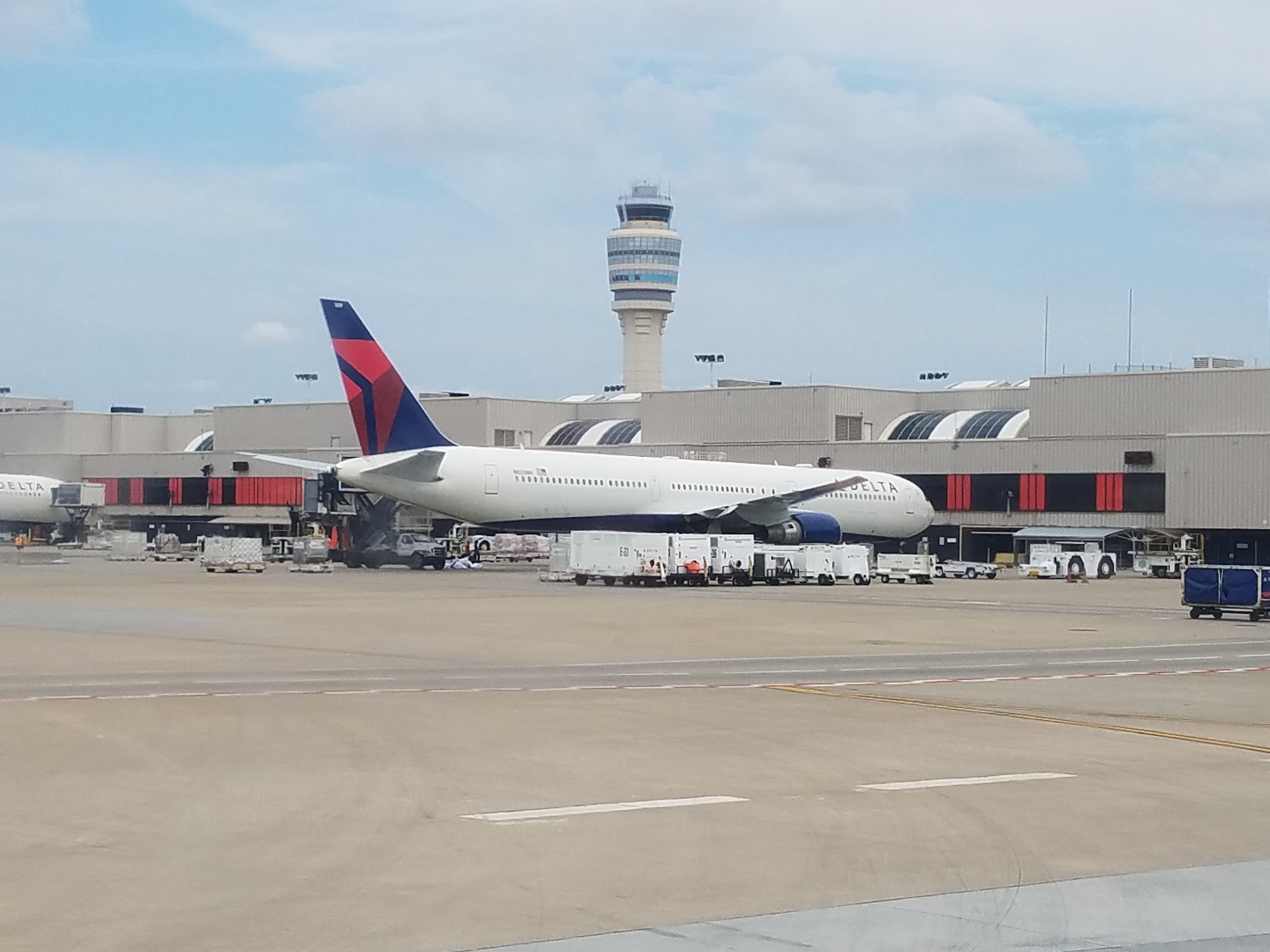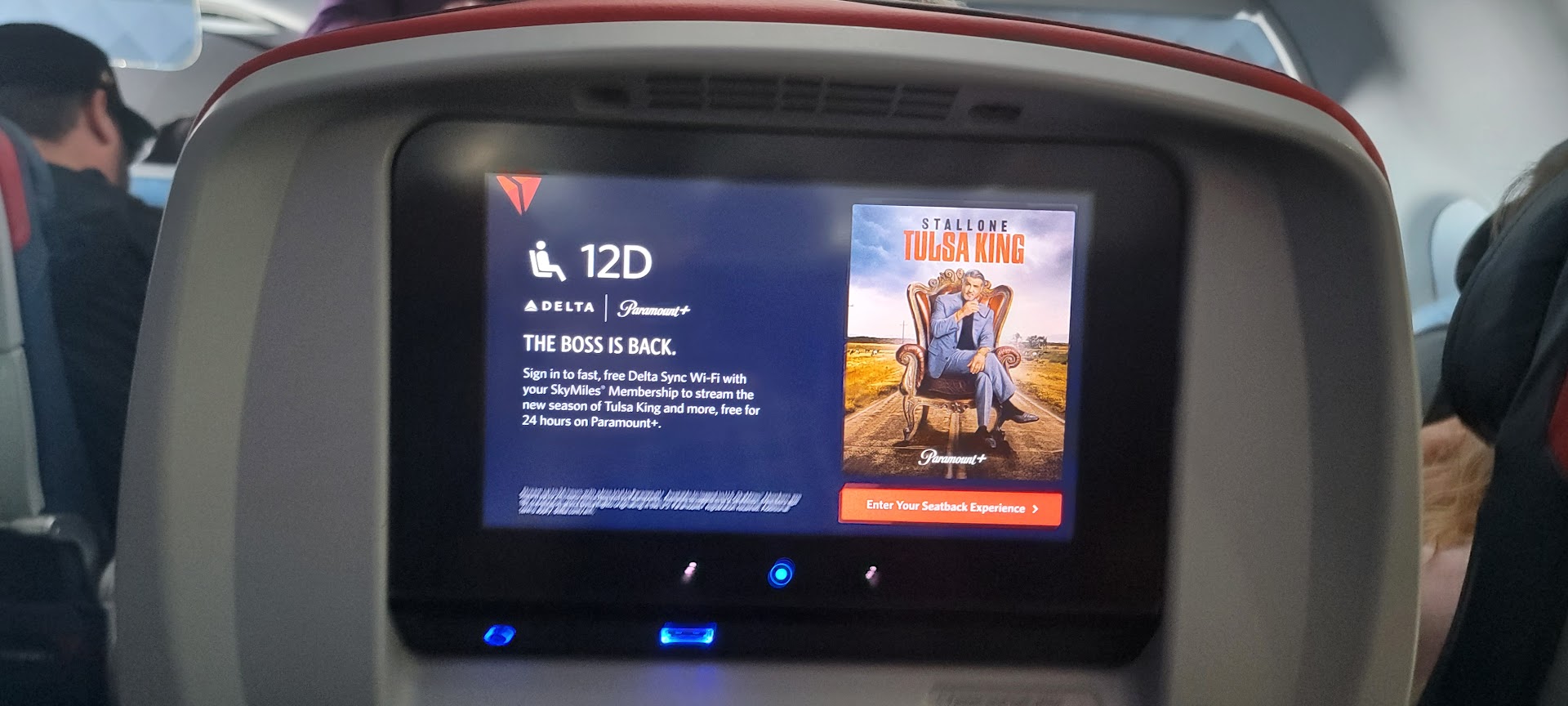Delta Partners With DraftKings On Sports Betting, But U.S. Law Grounds $1.3 Billion Inflight Gambling Potential
Delta Air Lines is venturing into sports betting as a new frontier in generating revenue. They announced a partnership with DraftKings at CES in Las Vegas. The airline isn’t yet providing details on what the new gambling integration will look like.
PaxEx Aero suggests it could mean onboard gambling through the airline’s inflight entertainment system, but I do not think so. That would be illegal.
I’m hoping that I misheard the part where Bastian described it as part of the “gaming” offerings on the in-seat IFE. I am not a fan of this at all. If people want to gamble on their personal devices that’s one thing. But pushing it into the IFE platform is a morally questionable choice to me.
Delta Can’t Currently Offer Legally Onboard Gambling
For 32 years, however, it was legal for foreign airlines flying to and from the U.S. to offer inflight gambling. And some have experimented with it.
However under the Gambling Devices Act of 1962 (also known as the Johnson Act, 15 USC 1171) gambling is illegal on US commercial aircraft. Gambling is legal in airports if it’s legal in the jurisdiction where the airport sits. The Las Vegas airport has generated over $1 billion in gambling revenue.

Las Vegas Airport
US-registered cruise ships got the ability to offer gambling with 1991’s United States-Flag Cruise Ship Competitiveness Act. TWA and Northwest Airlines lobbied for airlines to receive a similar exemption. However the government protected them from an uneven playing field in a different way — the Gorton amendment (49 USC 41311) prohibited gambling not just on US-registered aircraft but on any plane flying to or from the U.S. This may not be legal under US aviation treaties, but it has not been tested. Swiss operated under an exemption to the Gorton amendment.
While the Gorton amendment says that foreign airlines may not “install, transport, or operate, or permit the use of, any gambling device on board an aircraft in foreign air transportation” the FAA has said that it’s permissible for an aircraft flying to the U.S. to have an installed gambling device as long as it is deactivated for the flight.
Inflight Gambling Almost Was Legalized In The ’90s
The Department of Transportation studied inflight gambling in 1996, largely concluding it was fine, but stopping short of recommending legalizing the practice. The Clinton Administration at the time was proposing a national study on the effects of gambling and DOT held off from pre-empting this.

Delta Could Earn Billions If The Law Changed
In 1996, DOT concluded that airlines could earn $1 million per aircraft per year by offering gambling, $1.6 million in 2020 dollars or $1.3 billion per year for an 800 plane airline. (Airlines have argued that the potential economic impact is even greater than this.) Delta’s fleet is nearly 1,000 aircraft.

What To Expect From Delta-Draft Kings Partnership
It’s now possible to earn Marriott points through BetMGM so I expect this to look more like SkyMiles-earning for sports betting, although a much more innovative approach would be to offer SkyMiles redemption for gambling as well.
Like swapping Uber for Lyft, this hardly seemed worthy of a CES presentation at The Sphere, but like most things Delta the announcements are reasonably good but fall far short of the stories they prefer to tell.
I wouldn’t be surprised to see Delta test the waters in conversation with a Trump administration over online gambling. The President-elect himself was in the casino business at one point. However Las Vegas gaming companies are effective lobbyists against the expansion of gambling by other players and would likely oppose this.










:max_bytes(150000):strip_icc()/Peter-Pans-Neverland-Nightmare-010725-1-442a2a9ac39c495e86fcce6e0b25ad64.jpg)
